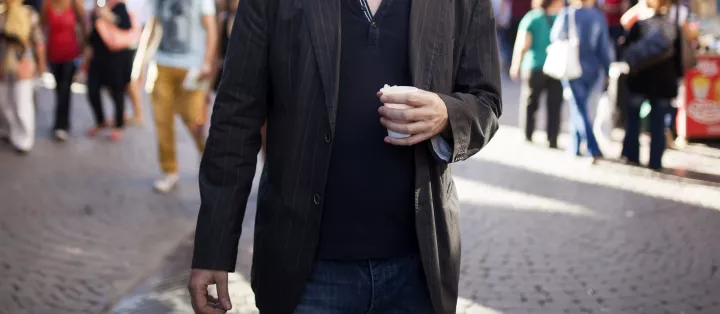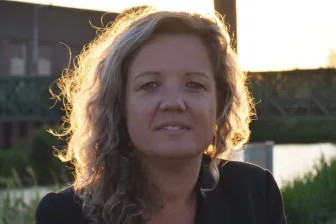E. was sexually abused as a child by a family friend. 35 years later, he meets with him. “I’m here to get closure.”
The abuse had abruptly stopped over 35 years before they sat opposite each other in a room inside a forensic psychiatric clinic. “I want you to look at me,” E., the victim, said to A., the offender, who guiltily kept his head down. In his hands, E. had a sheet of paper, from which he read the things he’d wanted to tell A. all this time. Now, looking back: “I wanted to put a full-stop behind it, not a comma.”
I’m here today to get closure. I’m very nervous and it’s uncomfortable for me to be here. A part of my is angry, and another part is alert. But I’m also brave and determined.
When he was 31 years old, E. found a therapist that was specialized in male abuse. His parents went with him too. “Everyone lives with the best intentions, that’s what I’ve learned in those conversations. My parents still have to live with their guilt, my mother has been depressed. They were very contrite.” In those conversations, the possibility of meeting A. for a last time was suggested. They heard about Perspectief Herstelbemiddeling. “It felt like I hadn’t gotten closure yet. We wanted to confront him with what he did to us.”
“He is sick”
In that room in the forensic psychiatric clinic, a small conference room with a whiteboard and a television screen, E. saw that A. took on the same guilt-conscious attitude that he had also taken during the conversation that they had when E. was eight years old. “He said everything he needed to say. That he had feared this day for a long time, the day that he’d have to look me in the eyes. I believe he learned that taking this attitude is the path of least resistance, but that he doesn’t mean the things he said. He is sick.” E.’s parents were present during the meeting as well. “My father said that he’s sorry he never reported it to the police. He gave A. a note, a symbolic police report. My mother said that she didn’t protect me and my sister well enough.”
“Here's my no”
It was agreed beforehand that A. would come in when E., his father, his mother, and the mediator from Perspectief were already there at the table. His father spoke first, then his mother, then A.. E.’s wasn’t present at the meeting, she didn’t feel the need to talk. E. had the last word. “I handed him post-its on which I had written what I still wanted to say to him.” One of the post-its read ‘NO’. “I couldn’t say no back then, but now I can. So here’s my no.’
"I faced my fears, that gives me self-confidence"
What did the meeting do for him? “For a week or two I felt euphoric. I was grateful that I had been able to do this. Life still feels lighter. The weight on my chest is gone, I think it’s because I’m more in touch with myself now. I faced my fears, that gives me self-confidence.
E. is now going through a rough time. “The job I was supposed to start fell through because of Covid. But I can show my grief about this to my family. I couldn’t do something like that before. That’s really because of the meeting.”
For privacy reasons, E. does not want his name to be mentioned.



